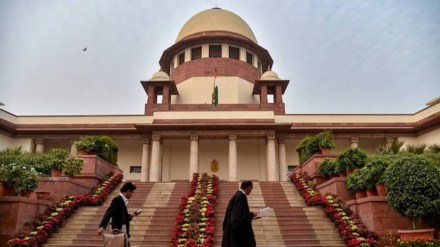The Supreme Court turned down a former Army personnel’s plea against his dismissal for overstaying the leave granted to him, saying discipline is the implicit hallmark of the Armed Forces and a non-negotiable condition of service, Bar and Bench reported.
A top court bench of Justices Hima Kohli and Rajesh Bindal on Friday observed that gross indiscipline by those serving in the forces can’t be tolerated.
The court made the observation while upholding former sepoy Madan Prasad’s dismissal from Army service for taking excess leaves without notice. The appellant was enrolled in the Army Service Corps as a mechanical transport driver on January 4, 1983.
In 1998, he was initially granted leave for 39 days from November 8 to December 16. His request for an extension of the leave on compassionate grounds was allowed by the respondents. He was granted a 30-day advance annual leave for the year 1999 from December 17, 1998, to January 15, 1999.
Despite this, he failed to rejoin duty, claiming that his wife had fallen ill and he was arranging her treatment and looking after her. The former sepoy then overstayed the leave granted to him, reported PTI.
On February 15, 1999, a Court of Inquiry was conducted under Section 106 of the Army Act to investigate the circumstances under which the appellant had overstayed his leave. The court opined that he be declared a deserter with effect from January 16, 1999. The Summary Court Martial found him guilty and dismissed him from service.
The two-judge bench of the Supreme Court said that the Army personnel did not place any document on record by way of the treatment summary or medical certificate of his wife to demonstrate that she was critically ill and required his presence for constant treatment. He had rather made “bald statement” before making submissions before the Court of Inquiry in 1999.
“Such gross indiscipline on the part of the appellant who was a member of the Armed Forces could not be countenanced. He remained out of line far too often for seeking condonation of his absence of leave, this time, for a prolonged period of 108 days which if accepted, would have sent a wrong signal to others in service. One must be mindful of the fact that discipline is the implicit hallmark of the Armed Forces and a non-negotiable condition of service,” the Court said, as quoted by Bar and Bench.
The apex court, thereby, upheld a February 2015 order passed by the Armed Forces Tribunal Lucknow Regional Bench dismissing the driver from service.
In the appeal before Supreme Court, the driver’s counsel argued that the punishment was grossly disproportionate to the offence.
However, the top court said that a summary court martial is empowered with sufficient discretion when it comes to imposing punishment for offences depending on the nature and gravity of the infraction, and rejected the driver’s contention that the punishment meted out to him was disproportionate.
“The appellant had been taking too many liberties during his service and despite several punishments awarded to him earlier, ranging from imposition of fine to rigorous imprisonment, he did not mend his ways. This was his sixth infraction for the very same offence. Therefore, he did not deserve any leniency by infliction of a punishment lesser than that which has been awarded to him,” the Court’s judgment stated.
